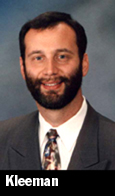|
PBS Kids said to need clearer focus on learning Originally published in Current,
June 24, 2002 A report commissioned by PBS and the Markle Foundation calls for an ambitious reinvention of PBS Kids, a "harder" curricular foundation for programs and greater clout for the network to commission the programs it needs. Public TV must wean itself from the soft curricular goals of its existing preschool-focused service, which is "heavily weighted" toward animated fiction, according to "One Mission, Many Screens," which was released to stations last week. The report recommends that PBS and stations develop a broader, deeper mix of educational fare for children of all ages, including programs presenting world cultures.
The report by David Kleeman, executive director of the American Center for Children's Media, is the culmination of extensive qualitative research. Kleeman interviewed or facilitated panel discussions with professionals in children's media and wrote the report [executive summary on Markle Foundation website]. "Commercial media are better suited to handling social learning than taking on harder, curriculum-based topics," said Kleeman. "The obligation of public media is to find ways to take on hard learning." The report speaks to the potential of PBS Kids not just on television and the Web but in digital services that have yet to emerge. It warns that ruling out a presence on emerging premium services risks shutting PBS Kids out of media venues that could become the next cool thing among kids. Although the report was written outside of Braddock Place and shaped by the opinions of outsiders, it articulates a mission and service plan that PBS itself embraces. Whether PBS can move forward on its boldest recommendations depends on reactions from station leaders. PBS initiates talks about the report and its conclusions this week during its annual meeting in San Francisco. By initiating the study, PBS acknowledged that the world of children's media is changing rapidly, and its role in it needs to change as well, said Alice Cahn, head of Markle's program on interactive children's media. Cahn held key children's programming positions at Children's Television Workshop and PBS in the late 1990s. "What's great about this report is that it gives us something concrete on which we can connect our decisions and move forward," said Alyce Myatt, PBS v.p. of programming, who supervises both the Ready to Learn service and the children's schedule. "We've always had strategic plans, but we've not always been as clear as we could be with each other, because we were kind of making it up as we went along." The report articulates a mission for PBS Kids that is already guiding content development, promotion and branding, and business activities, Myatt said. The mission, as put forth by the report, is: "PBS Kids educates, enriches and entertains all of America's children, employing the full spectrum of media to build knowledge and critical thinking; to empower children as citizens of their communities, nation and world; and to welcome parents, teachers and caregivers as learning partners." More clout to shape scheduleIn what will likely be its most controversial recommendation, "One Mission, Many Screens" says that if PBS is to craft a service focused on explicit educational objectives, it must be given the power to commission programs. PBS has historically been prohibited from producing and doesn't have the money to fill gaps in its schedule by commissioning shows outright, Myatt explained. Kidvid producers typically come to PBS with their concepts and some funding already arranged. PBS would need new financing and a new mindset to initiate content. The report balances this power shift by suggesting that PBS be required to outline formally and defend its learning objectives for programs. Research with kids, parents, teachers and caregivers about their expectations of educational media would shape its criteria. The recommendation on PBS commissioning raised "a giant red flag in my mind," said Diena Simmons, director of programming at KBYU in Provo. But the more she weighed the report against her own worries about slippage in the kids' audience and the softening of its educational values, she came to agree that giving PBS more control would help to differentiate the service. "We kind of have an unbalanced schedule," she said. "It's what's worked and what's come in with funding." Public broadcasters should "advocate vigorously" for new federal funding to expand its service to older children, the report also says. Jon Abbott, broadcast director at WGBH and former PBS development chief, found this recommendation intriguing, particularly if public TV expands its services to 9- to 11-year-olds, as PBS has proposed. If PBS can tailor a service plan to the educational needs of this age group, the case for federal funding would be very compelling, he said. "We could go to Congress and say, 'This is a challenge that we can meet.'" "I think that our service to children and families is acknowledged to be one of our absolute hallmarks and reasons for being," Abbott said. "In an overly commercialized world, it's important to step back and examine whether we can be even more creative and bolder." "One Mission, Many Screens" also recommends that:
|
|
 |
To Current's home page |
| Later news: PBS considers restarting production of Between the Lions. | |
 |
Outside link: Executive summary of "One Mission, Many Screens" report on Markle Foundation website. |
Web page posted July 31,
2002
Current
The newspaper about public television and radio
in the United States
A service of Current Publishing Committee, Takoma Park, Md.
E-mail: web![]() current.org
current.org
301-270-7240
Copyright 2002

 It
says PBS should maintain principles for children's public service media
that will distinguish it from commercial competitors and follow kids
into new media platforms such as video games.
It
says PBS should maintain principles for children's public service media
that will distinguish it from commercial competitors and follow kids
into new media platforms such as video games.